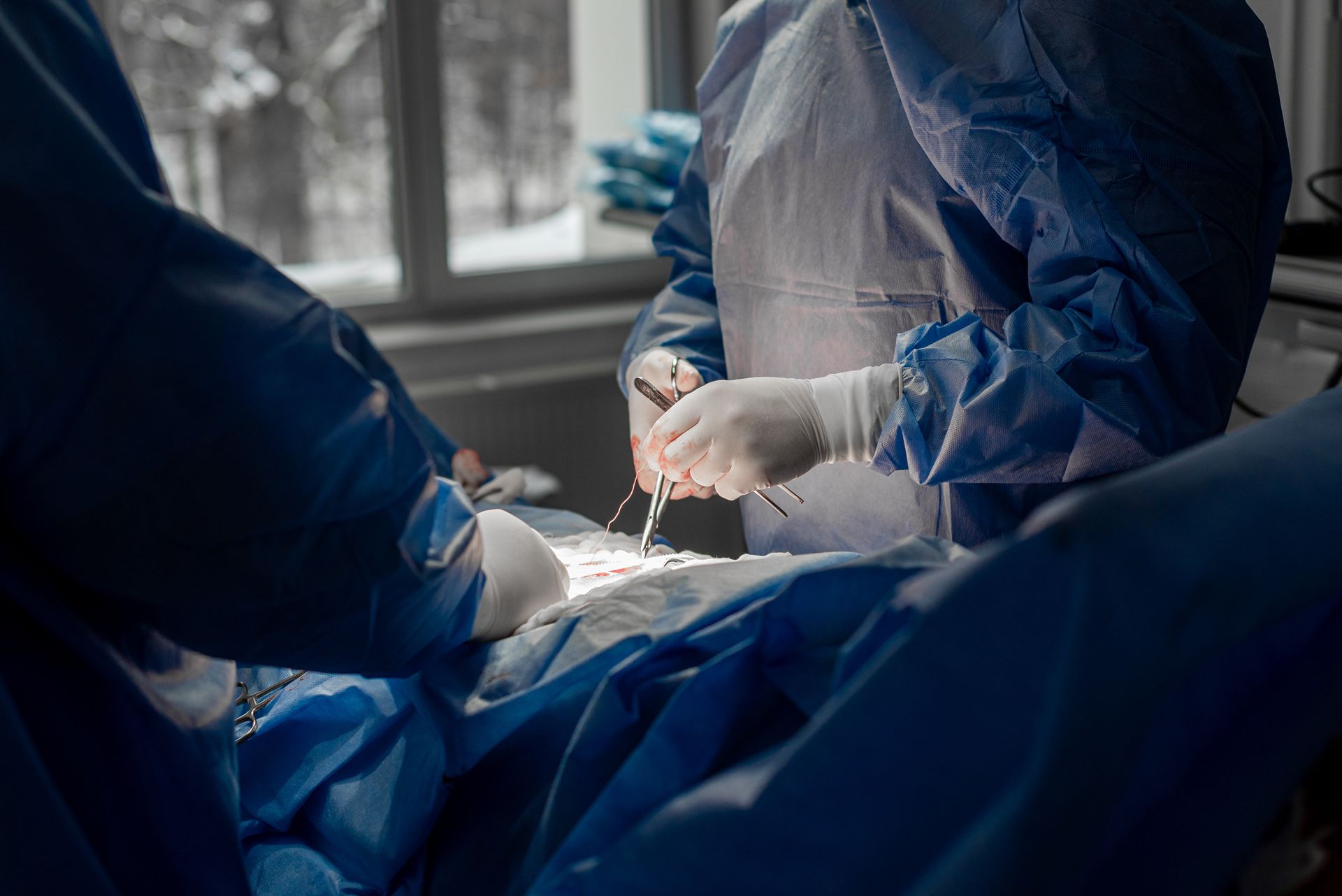Colorectal Surgeon: Understanding Rectal Prolapse

When it comes to colorectal health, finding a trusted and experienced colorectal surgeon in Phoenix is essential. At Copper Mountain Surgical, we specialize in diagnosing and treating a wide range of colorectal conditions, including rectal prolapse. This condition, while not often discussed, can significantly impact a patient’s quality of life. In this blog post, we’ll explore what rectal prolapse is, its symptoms, and the surgical solutions available to help patients regain their health and confidence.
What Is Rectal Prolapse?
Rectal prolapse occurs when the rectum—the last part of the large intestine—slips out of its normal position and protrudes through the anus. This condition can be uncomfortable, embarrassing, and even painful for those affected. While it can occur in anyone, it is more common in older adults, particularly women over the age of 50. However, rectal prolapse can also affect younger individuals, especially those with chronic constipation, a history of straining during bowel movements, or weakened pelvic floor muscles.
Types Of Rectal Prolapse
There are three main types of rectal prolapse, each varying in severity:
- Partial Prolapse (Mucosal Prolapse): Only the lining (mucosa) of the rectum protrudes through the anus. This is the mildest form of rectal prolapse.
- Complete Prolapse: The entire wall of the rectum extends outside the anus.
- Internal Prolapse (Intussusception): The rectum folds into itself but does not protrude through the anus. This type can be harder to diagnose and may require specialized imaging.
Understanding the type of prolapse is crucial for determining the most effective treatment plan. At Copper Mountain Surgical, our colorectal surgeons in Phoenix are skilled in identifying the specific type of rectal prolapse and tailoring treatment to each patient’s unique needs.
Symptoms Of Rectal Prolapse
Recognizing the symptoms of rectal prolapse is the first step toward seeking treatment. Common signs and symptoms include:
- A visible protrusion from the anus: This is often the most noticeable symptom. The protruding tissue may retract on its own or require manual pushing to return to its normal position.
- Pain or discomfort: Patients may experience pain during bowel movements or while sitting.
- Bleeding: The protruding tissue can become irritated, leading to minor bleeding or mucus discharge.
- Difficulty with bowel movements: Constipation, straining, or a feeling of incomplete evacuation are common.
- Fecal incontinence: In some cases, rectal prolapse can lead to the inability to control bowel movements.
If you’re experiencing any of these symptoms, it’s important to consult a colorectal surgeon in Phoenix as soon as possible. Early diagnosis and treatment can prevent complications and improve outcomes.
Causes And Risk Factors
While the exact cause of rectal prolapse is not always clear, several factors can increase the risk of developing this condition:
- Chronic constipation or straining: Repeated straining during bowel movements can weaken the muscles and ligaments that support the rectum.
- Childbirth: Women who have had multiple vaginal deliveries are at higher risk due to potential damage to the pelvic floor muscles.
- Aging: The natural weakening of muscles and connective tissue with age can contribute to rectal prolapse.
- Previous pelvic surgery: Surgeries in the pelvic region can sometimes lead to weakened support structures.
- Neurological conditions: Conditions such as multiple sclerosis or spinal cord injuries can affect the nerves that control rectal function.
At Copper Mountain Surgical, our team takes a comprehensive approach to understanding each patient’s medical history and risk factors to provide personalized care.
Diagnosing Rectal Prolapse
Diagnosing rectal prolapse typically involves a physical examination and a review of the patient’s medical history. During the exam, the colorectal surgeon Phoenix may ask the patient to strain as if having a bowel movement to observe the prolapse. Additional diagnostic tests may include:
- Defecography: This imaging test provides a detailed view of the rectum and anus during a bowel movement.
- Colonoscopy: To rule out other conditions, such as colorectal cancer or inflammatory bowel disease.
- Anal manometry: This test measures the strength of the anal sphincter muscles.
Once a diagnosis is confirmed, the team at Copper Mountain Surgical will discuss the most appropriate treatment options.
Surgical Solutions For Rectal Prolapse
For many patients, surgery is the most effective treatment for rectal prolapse. The goal of surgery is to return the rectum to its normal position and strengthen the supporting structures to prevent recurrence. At Copper Mountain Surgical, our colorectal surgeons in Phoenix are experienced in performing a variety of surgical procedures tailored to the patient’s specific condition and overall health. Explore Revealing Screening Guidelines: Colorectal Surgeon for more information.
1. Abdominal Approach
The abdominal approach is one of the most common surgical methods for treating rectal prolapse. This procedure involves making an incision in the abdomen to access the rectum. There are two main types of abdominal surgeries:
- Rectopexy: The rectum is repositioned and secured to the sacrum (the triangular bone at the base of the spine) using sutures or mesh. This helps stabilize the rectum and prevent future prolapse.
- Resection Rectopexy: In addition to securing the rectum, a portion of the colon may be removed to address issues such as chronic constipation.
The abdominal approach is often performed using minimally invasive techniques, such as laparoscopy or robotic-assisted surgery. These methods result in smaller incisions, less pain, and faster recovery times.
2. Perineal Approach
For patients who may not be candidates for abdominal surgery due to age or other health concerns, the perineal approach may be recommended. This procedure is performed through the anus and does not require an abdominal incision. Common perineal procedures include:
- Altemeier Procedure: The prolapsed rectum is removed, and the remaining rectum is reconnected to the colon.
- Delorme Procedure: The lining of the rectum is removed, and the muscle layer is folded to shorten and strengthen the rectum.
While the perineal approach is less invasive, it may have a higher risk of recurrence compared to the abdominal approach.
3. Combined Approach
In some cases, a combination of abdominal and perineal techniques may be used to achieve the best possible outcome. Our colorectal surgeons in Phoenix will carefully evaluate each patient’s condition to determine the most effective surgical plan.
Recovery And Aftercare
Recovery from rectal prolapse surgery varies depending on the type of procedure performed. Patients who undergo minimally invasive abdominal surgery typically experience a quicker recovery, with most returning to normal activities within a few weeks. Those who undergo perineal surgery may have a shorter hospital stay but should still allow time for proper healing.
At Copper Mountain Surgical, we provide comprehensive aftercare instructions to support our patients’ recovery, including:
- Pain management: Medications to manage discomfort during the healing process.
- Dietary recommendations: A high-fiber diet and adequate hydration to prevent constipation.
- Pelvic floor exercises: Strengthening the pelvic floor muscles to reduce the risk of recurrence.
- Follow-up appointments: Regular check-ups to monitor healing and address any concerns.
Why Choose Copper Mountain Surgical?
When it comes to colorectal health, choosing the right surgeon is crucial. At Copper Mountain Surgical, our team of colorectal surgeons in Phoenix is dedicated to providing compassionate, patient-centered care. Here’s why patients trust us:
- Expertise: Our surgeons are highly trained and experienced in treating complex colorectal conditions, including rectal prolapse.
- Advanced Technology: We utilize state-of-the-art surgical techniques and technology to ensure the best possible outcomes.
- Personalized Care: We take the time to understand each patient’s unique needs and develop customized treatment plans.
- Comprehensive Support: From diagnosis to recovery, we’re with our patients every step of the way.
Conclusion
If you’re experiencing symptoms of rectal prolapse or have been diagnosed with this condition, don’t wait to seek treatment. At Copper Mountain Surgical, our colorectal surgeons in Phoenix are here to help you regain your health and quality of life.
Contact us today to schedule a consultation and learn more about your treatment options.
You might also like
Book a Service Today
We will get back to you as soon as possible
Please try again later
Dr. High is a highly skilled General Surgeon known for providing compassionate and expert surgical care.
CONTACT INFO
PHONE: 480-892-2456
EMAIL: SEND MESSAGE
OFFICE FAX: 480-892-2458
REFERRAL FAX LINE: 484-249-1503
LOCATION: 4135 South Power Road
Suite 117 Mesa, Arizona 85212
SERVICES
All Rights Reserved | Copper Mountain Surgical




